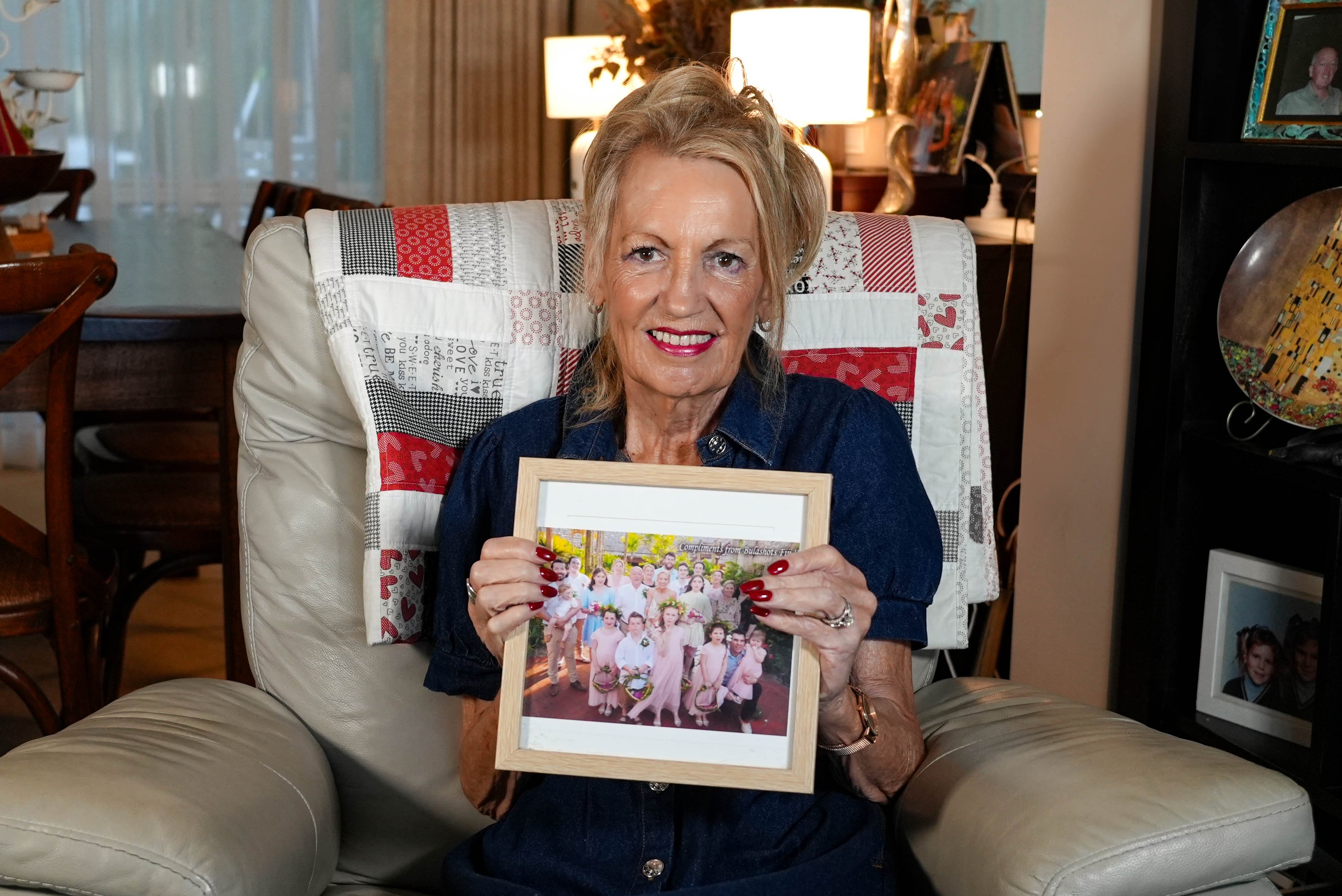Mother of six Trish Jamieson, of Belrose, has been to hell and back since she
was diagnosed with non-curable oesophageal cancer after experiencing
mystery symptoms, including difficulty swallowing, while on a holiday.
It all started in 2018. She quickly found herself confronted by a world of doctor’s
appointments and scans, major surgery and treatments. The focus was on her
body, and nobody asked how she was feeling.
“Oesophageal cancer is not like breast cancer – there are no support groups,
not even a general support group at the hospital, only specialised groups for
some” said Trish, also a grandmother of 15.
A bright spot for her was joining an Embrace group last year after learning of
the sessions as a Northern Beaches Community Palliative Care patient.
Embrace is an Australia-first program, developed by HammondCare, designed
to offer an intervention for people with a life-limiting illness, who often
experience spiritual and existential distress.
The program draws on the growing evidence for post-traumatic growth where
highly challenging life circumstances can lead to positive psychological change.
Research published this month in Patient Education and Counseling by Melanie
Lovell, Kerry Warner, Peter Archer, Rebecca McCabe and Philip Siddall described
the development of the novel intervention. Feedback from two pilot Embrace
groups and follow-up participant interviews was a key part of ensuring the
intervention was feasible and effective.
“This intervention developed using a post traumatic growth framework has the
capacity to improve the lives of people living with a life-limiting illness while
receiving palliative care,” the researchers wrote. The research was supported by
the David and Judith Taylor Foundation and the HammondCare Foundation.
Trish, blessed by the wonderful support of husband Geoff and her large family,
said the group-based format with others in a similar health situation created a
“safe place” for her to express her frustration and anger at circumstances, while
ending each meeting on a positive note. She it was “wonderfully freeing”. “You
can’t always voice your feelings with your family. There is always a discomfort
with talking honestly with them, you don’t want to bring them down,” Trish said.

Trish describes her present health circumstances as “stable”. Her Embrace
program finished last year but adds “I have to say I miss it.”
Dr Peter Archer, one of the developers of the program, said the program
allowed people with life-limiting health challenges to consider important life
questions in an “intentional and systematic” way. Embrace provides time and
space for participants to emerge with a greater sense of self. This could mean
addressing personal relationships, finding new priorities and values, or
discovering renewed strength and hope.
“In the aftermath of the struggle with challenging life circumstances, it is
possible to emerge with a sense of positive personal change,” Dr Archer said.
Dr Archer said a helpful metaphor is the Japanese art of Kintsugi Pottery – the
mending of a broken object with lacquer and gold so that breakage and repair
become part of the history of the object. “Metaphors like this remind us that
there is the potential for positive change and growth even as the cracks and
scars remain a part of who we are and are becoming,” he said.
HammondCare Senior Staff Specialist Professor Melanie Lovell, lead developer
of Embrace, said the program builds on previous research that suggests
addressing existential concerns can improve emotional well-being and physical
symptoms such as pain. “Our patients are reporting reduced anxiety, greater
resilience and a renewed sense of purpose, which is the best outcome we could
have hoped for,” Prof Lovell said.
More than 30 patients have gone through the program at Greenwich and
Neringah Hospitals and the Northern Beaches Community Palliative Care since
2023 with expansion expected to Braeside Hospital soon.